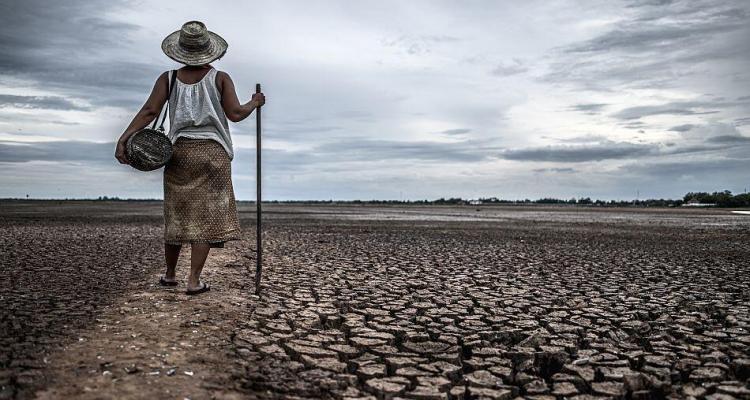
The International Water Management Institute (IWMI) and the International Maize and Wheat Improvement Center (CIMMYT) have called on policymakers and research-for-development organizations in Southern Africa, which includes Malawi, to take action to mitigate the possible impacts of the current developing El Niño event on small-scale farmers and rural communities and to keep tracking seasonal climate fluctuations.
Multiple climate prediction centers have concurred that this El Niño event will reach a “strong” category in the Northern Hemisphere by the winter of 2023-24.
El Niño events are characterized by sustained increases in sea surface temperatures over the central and eastern equatorial Pacific Ocean, due to weakened trade winds from the west, resulting in the accumulation of abnormally warm waters.
The climate effects of this typically include reduced rainfall, higher temperatures, and shifts in temperature extremes. The current El Niño event is predicted to reach its peak between November 2023 and February 2024, according to seasonal predictions of sea surface temperature anomalies.
The Limpopo River basin in southern Africa is anticipated to experience lower rainfall and higher-than-average temperatures during June to November 2023.
Although the forecast fluctuations are generally low during this period, there are concerns about a negative impact on rainfall in the Limpopo Basin, particularly in November, which marks the beginning of the rainy season.
The lower-than-average rainfall could potentially delay planting dates for crops like maize in 2023, leading to decreased yields due to heat and water stress later in the 2023/24 season.
Furthermore, the forecast indicates that mean temperatures in the Limpopo Basin are expected to be above average from June to November 2023. High temperatures accompanied by rainfall deficits in November could exacerbate water deficits and environmental stress for maize seedlings.
Given the evolving El Niño event and upcoming forecasts, it is crucial to monitor stress conditions in the coming months. IWMI and CIMMYT recommend that governments, research organizations, and farm support agencies taking proactive measures to mitigate the potential impacts on the Limpopo Basin.
This includes considering the use of maize cultivars tolerant to water and thermal stress, as well as promoting management practices to retain soil moisture and increase water use efficiency.
According to Dr Blessing Mhlanga, Diversification and Sustainable Intensification of Maize-Based Farming Systems and Cropping Systems Agronomist (CIMMYT), the importance of good agricultural practices that fall under conservation agriculture cannot be overstated.
“Timely planting and the use of stress tolerant varieties are crucial practices, especially under the changing climatic conditions as faced by the Limpopo River Basin region. Digital warning systems are vital to educate farmers on the right time to plant to reduce the devastating effects of water stress to crops.”
The historical record of maize yields in South Africa, Mozambique, and Zimbabwe during El Niño years shows a mean decline in maize yields.
However, it is important to note that not all El Niño events fit the average and there are years with above-average maize yields.
Factors such as variations in patterns in sea surface temperatures in the Pacific Ocean and sub-seasonal phenomena like the Madden-Julian Oscillation can significantly modify the El Niño signal and therefore maize yields in the Limpopo Basin.
IWMI and CIMMYT have utilized various methodologies and climate models to project rainfall and temperature extremes, analyse historical maize yield data, and assess the potential impacts of the El Niño event. The findings emphasize the need for continued research and efforts to understand the variation in El Niño impacts on maize yields in southern Africa.
“Farmers need to be educated on drought-tolerant seeds that can withstand water and heat stress. Fire breaks ought to be put in place now as elevated temperatures increase the risks of wildfires. Water conservation and harvesting technologies need to be promoted to optimise the little rain that may come. If ever there was a time to prepare, it is now, to lessen the burden of hunger and food scarcity associated with the lurking super El Niño conditions,” said Prof Mabhaudhi, IWMI and University of KwaZulu-Natal School of Agricultural, Earth and Environmental Sciences expert.
IWMI and CIMMYT encourage stakeholders in the Limpopo River Basin to stay informed about the evolving El Niño event and its potential implications. It is vital to prioritize sustainable and inclusive solutions that can help mitigate the adverse effects of climate variability and ensure the resilience of agricultural systems.














